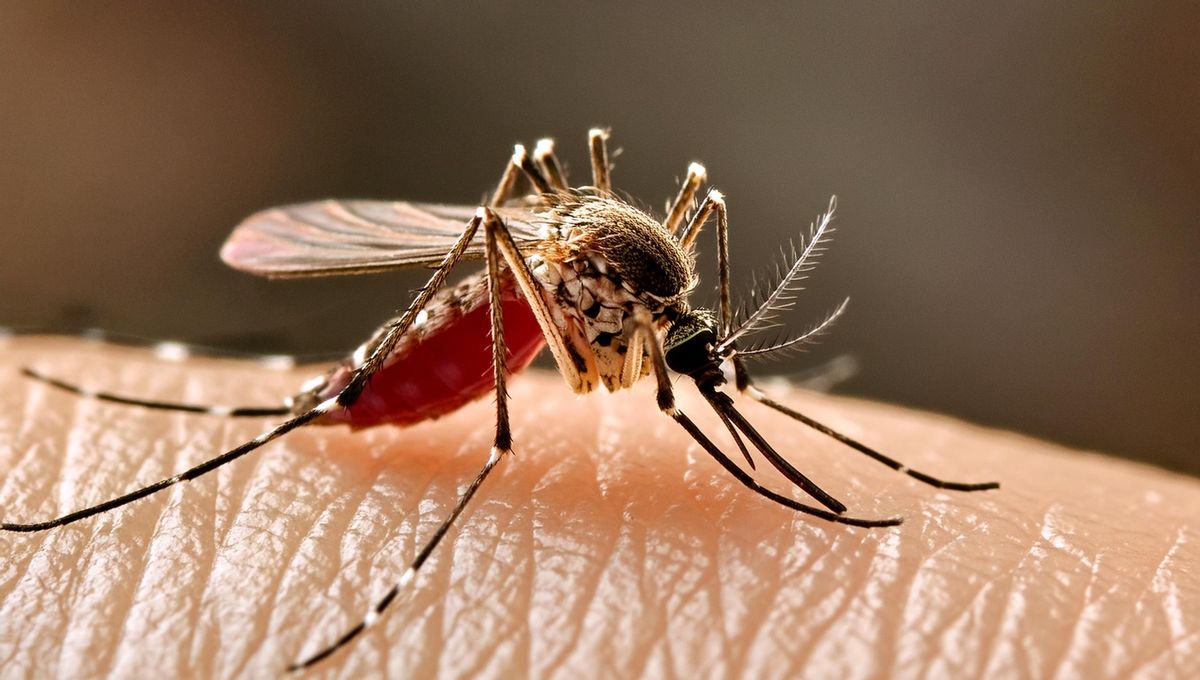
In the latest step in the fight against mosquito-borne disease, scientists have sent in the drones. Field trials have seen uncrewed aerial vehicles (UAVs) flying over Fiji, dropping hundreds of mosquitoes infected with bacteria that stop them from spreading diseases like dengue among the human population.
Dengue is a viral disease that is spread by the bite of the Aedes aegypti mosquito. Around half of the world’s population live in areas with a high risk of dengue transmission. Cases this year have been surging, with the Pan American Health Organization (PAHO) reporting an increase of 233 percent in the first 28 weeks of 2024 compared to the previous year.
There are no specific treatments for dengue. While many people will recover after a short illness, about 1 in 20 will develop severe disease, which is a medical emergency and can be fatal. Ae. aegypti mosquitoes don’t only transmit dengue either – they’re also vectors for Zika, chikungunya, and yellow fever.
To try and combat the spread of all these diseases, the World Mosquito Program has developed a strategy that involves infecting the insects with Wolbachia bacteria. These don’t cause human disease or pose a threat to the environment – many other mosquito species carry them naturally. What Wolbachia can do is prevent viruses like dengue from taking hold inside the mosquitoes. If they can’t get infected with dengue, they can’t spread it to the next person they bite.
It’s a neat solution that has shown great promise in the field: Seeding a population of infected mosquitoes in the Indonesian city of Yogyakarta in 2017 led to a 77 percent decrease in dengue infections, in a country that sees more than 7 million cases per year. A 2023 study even suggested that these interventions could be more effective than trial data suggests.
The next question: how could we replicate this success in a larger geographical area? That’s where a new study from World Mosquito Program scientists and robotics experts comes in.
“[We] developed a fully automated mosquito dosing release system that released smaller cohorts of mosquitoes over a wide area and integrated it into [a UAV],” the authors write in their paper. “We established the effectiveness of this system using an aerial mark, release, and recapture approach. We then demonstrated that using only the aerial release method, we can establish Wolbachia infection in a naive Ae. aegypti population.”
With the cooperation of local communities, the team began with a 4-week trial in Nakasi, Fiji. The drones were deployed to release mosquitoes tagged with fluorescent powders, so they could later be identified and recaptured. This showed that the system worked, and the mosquitoes survived their journey.
The second part of the study saw the team trialing the drones across a 2-square-kilometer (0.8-square-mile) zone in the town of Nausori. An average of 155 mosquitoes per hectare were released each week for 16 weeks in total (with a couple of short pauses to iron out technical issues). Overall, they calculated that around 31,000 insects infected with Wolbachia were released, with the aim that these individuals would establish the bacteria within the local mosquito population.
When they reviewed the situation a year later, this is exactly what the team found, recording a Wolbachia prevalence of almost 60 percent.
“This proof-of-concept study provides the basis for the further development of improved dosing mechanisms, long-range delivery platforms, and the associated mosquito-handling systems required,” the team concluded. While they acknowledge that their system could use some refinement, it’s a promising step forward.
Thanks to climate change, the range of Ae. aegypti mosquitoes is expanding, meaning more people will likely be at risk from the diseases they carry. We need all the help we can get, and drones might just be an important part of that.
The study is published in the journal Science Robotics.
Source Link: World-First Mosquito Drone Deliveries Could Help Stop The Spread Of Diseases Like Dengue